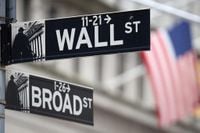On April 28, 2025, a significant blackout swept across most of Spain and all of Portugal, marking one of the worst power outages in Europe in recent years. The blackout occurred around noon, causing widespread disruptions to public transport, traffic lights, and phone services in major cities like Madrid, Barcelona, and Lisbon. Trains were also halted as the grid operator, Red Electrica, worked to restore power.
According to Eduardo Prieto, the director of services at Red Electrica, the outage was triggered by sharp power swings, also referred to as "oscillations," which caused a sudden imbalance in the network. While some areas in Spain began to regain power later in the afternoon, full restoration of electricity across the country was not expected until at least the evening.
As Spain and Portugal grappled with the effects of the blackout, financial markets in both countries remained operational. Spain's IBEX 35 Index managed to trade 0.8% higher, while Portugal's PSI 20 Index experienced a 1% decline, influenced by disappointing earnings from Galp Energia SGPS SA. Interestingly, the blackout occurred amidst a backdrop of fluctuating energy prices and ongoing discussions about energy policies in Europe.
In a related context, U.S. Energy Secretary Chris Wright addressed the Three Seas Business Forum in Warsaw on the same day, advocating for central and eastern European nations to embrace a path of "energy freedom." He criticized western Europe’s approach, describing it as an expensive "top-down imposition of enforced climate policies." Wright’s remarks come as part of a broader U.S. strategy to influence energy policies in Europe, especially in light of the recent energy crisis.
Meanwhile, the stock market in the U.S. showed signs of resilience, with the S&P 500 Index rising 0.2% at 9:33 a.m. in New York. Investors were optimistic ahead of a week packed with corporate earnings reports and key economic data. The Nasdaq 100 Index remained relatively unchanged, while the Dow Jones Industrial Average increased by 178 points, or 0.4%. This uptick followed a period of volatility sparked by President Donald Trump’s recent tariff announcements, which had previously sent shockwaves through global markets.
On the corporate front, Boeing Co. saw its shares rise by 2.41% after Airbus SE agreed to acquire certain assets from Spirit AeroSystems. This development is part of a broader trend of mergers and acquisitions that has characterized the current market environment, as investors react to both domestic and international economic shifts.
In Europe, the Stoxx Europe 600 Index climbed 0.7% by mid-afternoon, buoyed by gains in banking and travel sectors. This marked the index's fifth consecutive session of gains, the longest winning streak since January. Germany’s DAX index also advanced by 0.7%, recovering all its losses since early April when Trump's tariffs were first announced.
Despite the positive performance in the stock markets, the European Central Bank’s Vice President, Luis de Guindos, cautioned that recent financial market volatility must be closely monitored. He noted that this turmoil could potentially lead to disorderly adjustments, particularly as non-bank financial institutions grow in influence.
In a different sector, Cargill Brazil President Paulo Sousa expressed concerns regarding the increased competition for Brazilian soybeans due to rising Chinese demand. This comes as Cargill reported a loss in Brazil for 2024, attributed to unfavorable exchange rates and fluctuations in crop prices. Sousa indicated that the company is reconsidering its plans for expanding oilseed crushing capacity in Brazil due to the uncertain tariff environment.
On the tech front, Nscale, a startup focused on artificial intelligence infrastructure, is attempting to raise approximately $2.7 billion to build data centers globally, supported by a partnership with ByteDance Ltd., the owner of TikTok. The funding includes a substantial $1.8 billion private credit deal led by Goldman Sachs, highlighting the growing investment in AI technologies.
Meanwhile, Wells Fargo & Co. announced the termination of a consent order from the Consumer Financial Protection Bureau, a move seen as part of the bank’s efforts to improve its compliance risk-management program. CEO Charlie Scharf remarked, "Today’s termination, along with the recent closure of other consent orders, demonstrates that we have completed much of our common risk and control infrastructure work."
In the UK, Deliveroo Plc shares surged by over 18% after the company disclosed a cash acquisition offer from DoorDash Inc., valuing Deliveroo at around $3.6 billion. This news contributed to a positive sentiment in the market, as Deliveroo shares have risen about 19% this year.
As the day unfolded, emerging-market stocks also saw gains, with the MSCI Emerging Markets Index rising for the second consecutive day. Analysts noted that this increase was driven by improving economic data from China and a waning demand for U.S. assets, indicating a shift in investor sentiment.
Overall, April 28, 2025, was a day marked by significant events in both energy and financial markets, with the major blackout in Spain and Portugal serving as a stark reminder of the challenges facing energy infrastructure in Europe. As governments and corporations navigate these complexities, the implications for consumers and investors alike remain to be seen.




